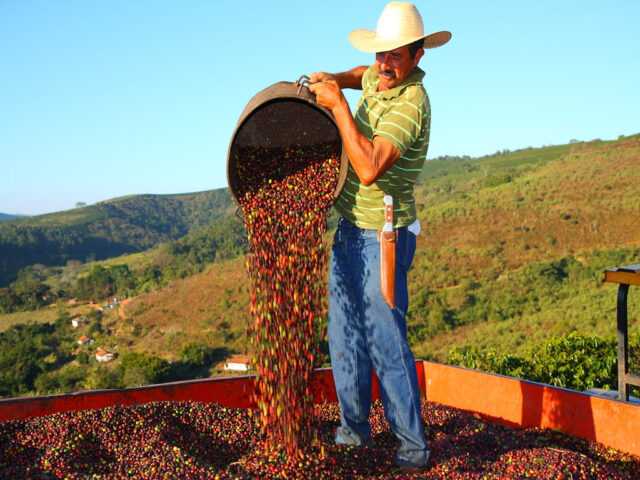PIRACICABA, Brazil – Although the arabica harvesting is nearing the end, prices increased in the Brazilian market in the first fortnight of August, reflecting growers’ retraction, who are focused on future deliveries, and expectations for a smaller 2017/18 arabica crop than the expected, due to standard issues (smaller screen) and productivity issues (such as coffee berry borer).
In the first fortnight of August, the CEPEA/ESALQ Index of arabica type 6, hard cup or better (delivered in São Paulo city), averaged 469.61 BRL (149.41 USD) per 60-kilo bag, 3.9% up compared to the average in July (451.90 BRL per bag), returning to the levels observed in April 2017, in nominal terms. Thus, despite the retraction of many agents, liquidity increased occasionally in the domestic market.
Price rises of higher quality arabica pushed up quotes of lower quality arabica as well. In the second week of August, demand for these beans, mainly from Brazilian coffee roasters, increased, since robusta supply was still low.
Despite higher production in 2017/18, robusta growers continued retracted, focused on the flowering events of the 2017/18 season, thus hampering trades.
In the spot market, with the slow pace of trades, the CEPEA/ESALQ Index of robusta type 6, screen 13, Espírito Santo State, closed at 410.47 BRL (129.24 USD) per 60-kilo bag on August 15, 1.03% down compared to July 31.
Exportations
In July (the first month of the 2017/18 exporting season), the Brazilian coffee exportations decreased, compared to the same month of 2016, according to Cecafé (Coffee Exporters Council).
The volume of green coffee (considering arabica and robusta) exported in July totaled 1.5 million bags, 8.1% smaller than that shipped in the same period of 2016.
According to agents, the smaller volume reflects lower coffee supply, due to the smaller harvested volume and sellers’ retraction. Besides, the consuming countries are relatively stocked up, reducing purchases.
The pace of shipments is expected to keep slow until the entry of more arabica batches from the 2017/18 season, forecast for late September.

















